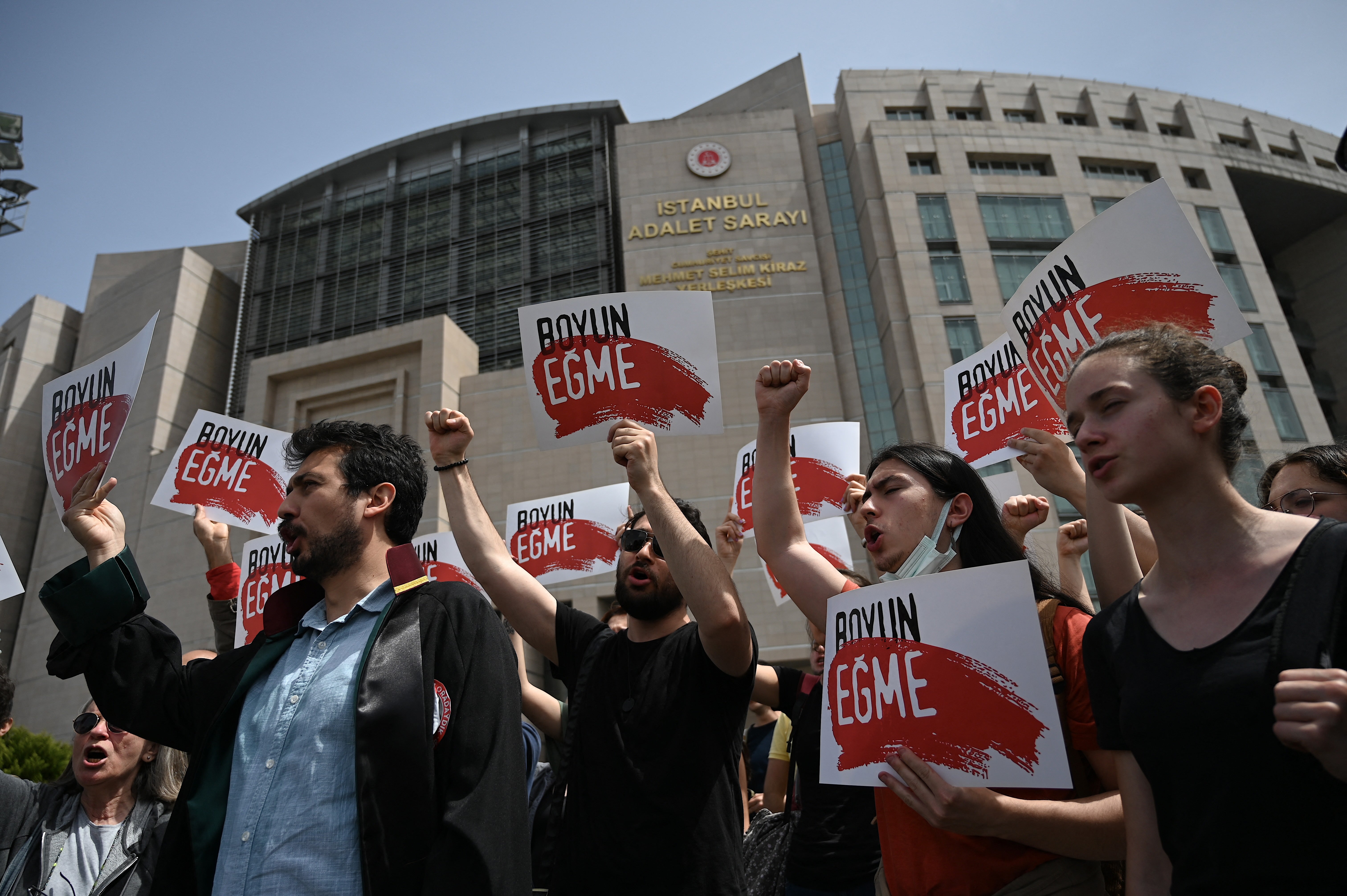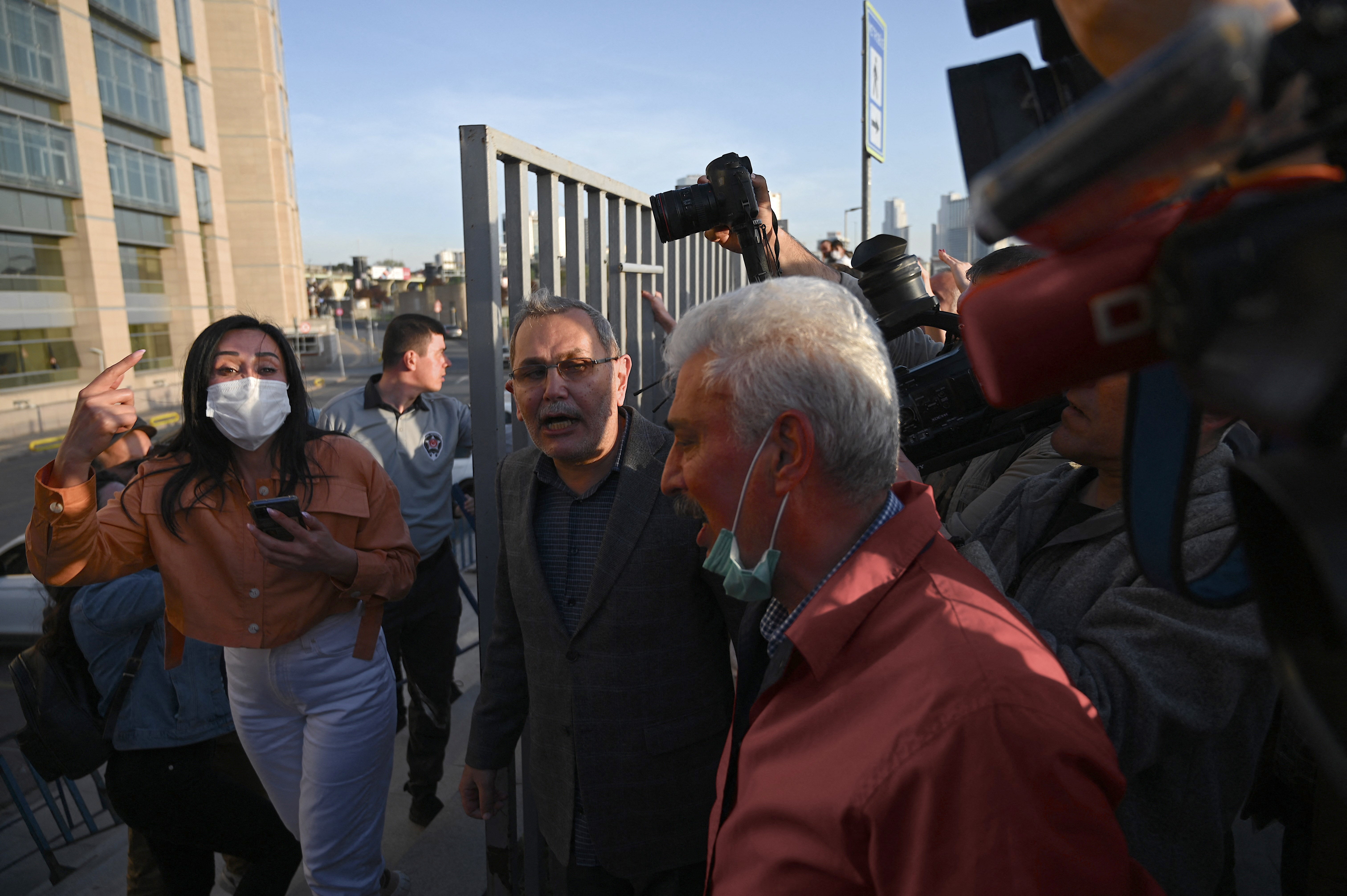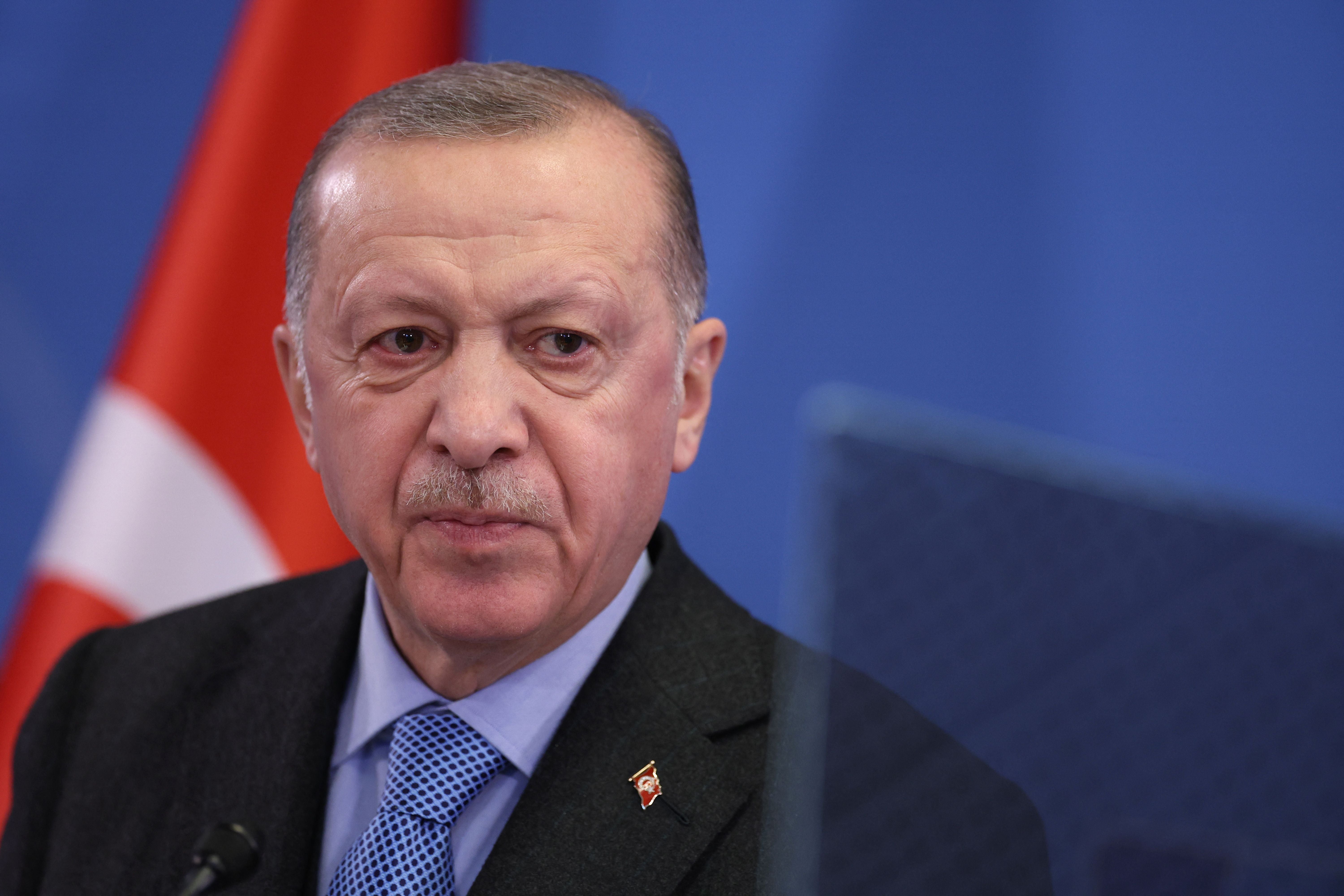Life sentence for Turkish activist sends warning to Erdogan’s opponents ahead of 2023 elections
Istanbul court handed an aggravated life sentence to Osman Kavala and 18-year sentences to seven others
Your support helps us to tell the story
From reproductive rights to climate change to Big Tech, The Independent is on the ground when the story is developing. Whether it's investigating the financials of Elon Musk's pro-Trump PAC or producing our latest documentary, 'The A Word', which shines a light on the American women fighting for reproductive rights, we know how important it is to parse out the facts from the messaging.
At such a critical moment in US history, we need reporters on the ground. Your donation allows us to keep sending journalists to speak to both sides of the story.
The Independent is trusted by Americans across the entire political spectrum. And unlike many other quality news outlets, we choose not to lock Americans out of our reporting and analysis with paywalls. We believe quality journalism should be available to everyone, paid for by those who can afford it.
Your support makes all the difference.Turkey has issued a harsh and widely condemned verdict against a respected philanthropist who earned the ire of president Recep Tayyip Erdogan with his alleged involvement in anti-government events years ago.
But the aggravated life sentence imposed on Osman Kavala, 64, and lengthy sentences on seven others by an Istanbul court late on Monday may have less to do with their past actions than with Turkey’s future.
Crucial 2023 presidential elections are on the horizon. A weakened Mr Erdogan will face off against an emboldened and increasingly popular opposition.
The life sentence against Mr Kavala, charged with attempting to overthrow the government, and the sentencing of seven other dissidents to 18-year prison terms were deemed as signals to the political elite. The message is that Mr Erdogan will seek to maintain tight controls over the political space ahead of the vote scheduled for 18 June 2023.
“Election season is approaching,” one Ankara insider told The Independent in an interview. “There’s dissolution within the state apparatus, and he’s trying to intimidate the ruling class.”
Mr Kavala has been in prison for nearly five years without any verdict and despite an order by the European Court of Human Rights, to which Turkey is a signatory, to release him.
He was first accused of organising 2013 protests against Mr Erdogan’s decision to revamp Istanbul’s Gezi Park. The demonstrations escalated into a nationwide months-long movement against the leader’s increasingly authoritarian rule.
A court later dismissed the Gezi Park charges and ordered him released. He was immediately re-arrested on charges of taking part in a 2016 coup attempt against Mr Erdogan. That violent debacle has been attributed to the movement of an Islamic cult leader who despised Mr Kavala and his elite segment of Turkish society.

Amnesty International said the Kavala case “defies all logic” and that “prosecuting authorities have repeatedly failed to provide any evidence that substantiates the baseless charges of attempting to overthrow the government”.
The prosecution has attracted worldwide attention, although the UK’s Foreign Commonwealth and Development Office (FCDO) has been silent. After the verdict, the US State Department issued a statement of condemnation that was unusual in its length and detail.
“His unjust conviction is inconsistent with respect for human rights, fundamental freedoms, and the rule of law,” said Ned Price, spokesperson for the US State Department. “We remain gravely concerned by the continued judicial harassment of civil society, media, political and business leaders in Turkey.”
In February, the Council of Europe launched infringement proceedings against Turkey over its failure to release Mr Kavala. That process could lead to Ankara’s expulsion from the body.
Then in October, Mr Erdogan nearly sparked a major diplomatic crisis after threatening to expel diplomats from nearly a dozen countries that issued a statement calling for Mr Kavala’s release.

International officials with contacts deep inside Mr Erdogan’s government have sought to lobby the president for the release of Mr Kavala. They have come away empty-handed. Mr Erdogan last year called Mr Kavala “Soros scum” referring to American philanthropist George Soros, who conspiracy theorists believe was behind the colour revolutions that brought down dictatorships in eastern Europe.
Class resentments may be at the root of Mr Erdogan’s animosity. Unlike Mr Kavala, who was the scion of a wealthy and highly educated family, Mr Erdogan grew up relatively poor in a working-class district of Istanbul.
“He holds personal grudges,” said Nevsin Mengu, an independent Istanbul-based political journalist and columnist. “He’s been holding this personal grudge for many years.”
But many analysts say the harsh ruling is meant to tighten the political space ahead of elections. Repeated polls show Mr Erdogan losing to several opposition figures—including Istanbul mayor Ekrem Imamoglu, Ankara mayor Mansur Yavas, and centre-left opposition party leader Kemal Kilicdaroglu—in a head-to-head matchup.
Support for his Justice and Development Party (AKP) and its far-right junior partner has fallen to under 40 per cent amid an economic crisis, inflation and unemployment. Already top civil servants and officials have begun building ties with the opposition ahead of what they perceive may be a massive change. Despite political pressures, one judge in the three-judge panel which sentenced Mr Kavala voted to release him, and he was acquitted of an espionage charge.
Protesters announced plans to gather Tuesday evening in front of the imposing Caglayan courthouse in Istanbul where he was sentenced.
“Erdogan knows that there’s some tectonic shifts on the ground. High judges, bureaucrats are making overtures for the post-Erdogan era,” said the Ankara-based political insider. “Erdogan is trying to intimidate the opposition on the outside of the government and the opposition that is emerging on the inside. He’s basically trying to give the message that he still runs supreme, calls the shots.”

Ms Mengu described the ruling as a reminder that the red lines are further narrowing ahead of the vote. “You have to be really careful to stay out of jail before the elections,” she said.
Ms Mengu also said the government’s persecution of Mr Kavala and other left-leaning activists may help divide his opponents, which include centre-right nationalist figures as well as former AKP members.
Turkey’s crucial European trade partners also responded to the Kavala conviction. Annalena Baerbock, the foreign minister of Germany, which has extensive economic and cultural links to Turkey, said the sentence defied “the rule-of-law standards and international obligations to which Turkey is committed”.
Analysts say western nations are likely hedging their condemnations. Turkey has emerged as an important partner in the effort to confront Russia in Ukraine, where Turkish-made Bayraktar drones have played a role in destroying Russian military equipment. But they may also be counting on a political change.
“As long as this government is there it’s going to be very difficult to improve ties with the west,” Demir Murat Seyrek, a Brussels-based professor of international relations specialising in Turkish foreign policy, said in a Twitter Spaces discussion. “After the Ukraine crisis, in terms of foreign policy and security, there are more common points. But as long as Turkey doesn’t go back to the policy line of demarcation this isn’t going to change.”
Still, he added, “one year from now we may talk about a very different Turkey.”
In a tweet, Mr Kilicdaroglu, leader of the People’s Republican Party (CHP), condemned the sentences as the result of a “tyrannical and lawless government, which has descended on our country like a nightmare”.
But he concluded with a positive, confident note, referring to the elections next year: “It’s almost time,” he wrote. “We will end this persecution and restore justice.”
Subscribe to Independent Premium to bookmark this article
Want to bookmark your favourite articles and stories to read or reference later? Start your Independent Premium subscription today.




Join our commenting forum
Join thought-provoking conversations, follow other Independent readers and see their replies
Comments